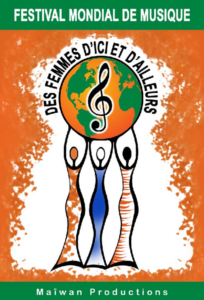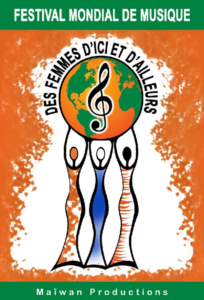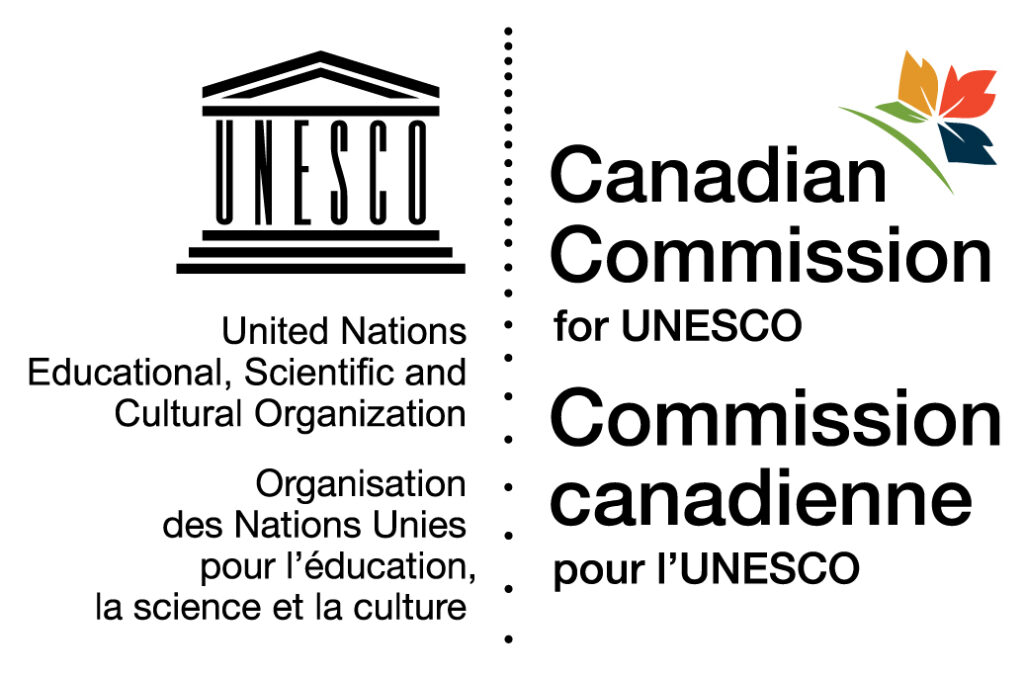

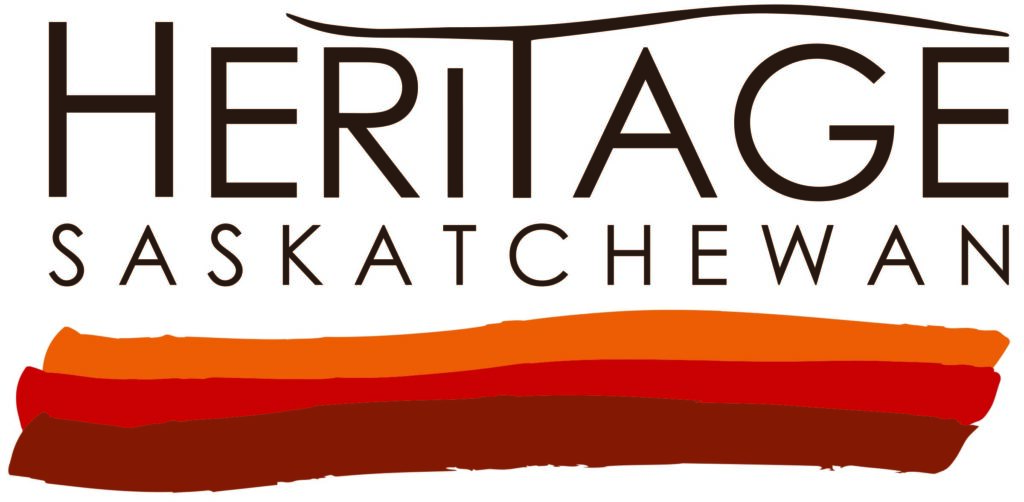


Panelist Biographies
Ami Hagiwara has been teaching the Japanese language and culture at the University of Northern British Columbia for over 25 years and practicing floral arranging for over 40 years. After graduating from Nihon University with a Master’s degree in Education from the University of Northern British Columbia, she moved to Canada in 1994 and started to teach at the university. She established most of the exchange programmes with partner universities in Japan, providing care for inbound students and connections with outbound students. She has a particular focus on composition and Kanji pedagogy. Her favourite thing to do in everyday life is to have a cup of tea with cake between classes and grading.
I am Charly Maiwan Moaku Matia. I am a promoter, producer, and consultants of artists. I have been a cultural operator for more than 30 years and I have been president of the two structures: www.maiwanproductions.com www.festivalmondialmusicfemmes.com. I also work with several organizations around the world.
Darlene Cooper. The Black Loyalist Heritage Society was founded in the late 1990 as group of Black Community Members in the Birchtown/Shelburne Nova Scotia who were discussing the fact and issues of no historical information on the founding Black community of Birchtown and Shelburne, when the communities were being settled in 1783 by United Empire Loyalist. Those Founding Members worked tirelessly to bring to Government (Municipal & Provincial) the necessity of telling the story of how African Canadians came to the Maritime Provinces. With fundraising efforts and by partnering with all levels of government, the larger community and other organizations to build the Black Loyalist Heritage Centre, took many years. The Centre opened in 2015 and is the jewel of the Nova Scotia Museum Family. I am a 6th generation Black Loyalist; I grew up in Shelburne, graduated, attended University until 1981 when I ventured West with my husband to start a family and raised our children. I retired in 2018 returned to Shelburne, in 2019 to start our retirement (during the COVID Pandemic). I became a Board Member of the Heritage Society in Summer 2020 and am now its President since 2021. I’m still learning the ropes. I cannot stress how important the Centre has become, especially for its significant importance to the Black Community: our roots, and the stories of where we come from. I did not have the opportunity to learn this history in school nor was I that aware of my Black heritage but this is the local history dating back to 230 plus years.
Laa mie, t’an ennym orrym Gary Wilson as ta mee Olloo ayns politickaght as reiltys ec y Ollooscoill Cholumbia Goaldagh Twoaie. Hello, my name is Gary Wilson and I am a professor of politics and government at the University of Northern British Columbia. My research focuses on linguistic and cultural revitalization in the Isle of Man and other small island jurisdictions in the British Isles. I am particularly interested in the relationship between language revitalization and political self-determination, and I have examined Indigenous-state relations and Indigenous self-determination in the Canadian and circumpolar Arctic as part of my research. My maternal ancestors were from the Isle of Man and I have recently started to learn Manx Gaelic, the island’s Indigenous language, through an online course offered by Culture Vannin, an organization that promotes the Manx language and culture. His work on Indigenous language revitalization has been published in Current Issues in Language Planning and Language Documentation and Description.
Howard Jang is an internationally respected arts leader. In January 2022, Howard joined ArtSpring Arts Centre on Salt Spring Island as their Executive and Artistic Director. Most recently, Howard served as Vice President, Arts and Leadership at Banff Centre for Arts and Creativity. Howard also has held leadership positions with the Arts Club Theatre, Ballet BC, Winnipeg Symphony and the Vancouver Symphony Orchestra. He also served as Professor of Professional Practice at the SFU School for the Contemporary Arts and Director of the SFU Woodward’s Goldcorp Centre for the Arts. Howard Jang has been an active member of several volunteer boards and committees, most notably for the Canadian Arts Summit, Orchestras Canada, Manitoba Arts Stabilization, and the Canada Council, BC Arts Council Music, City of Vancouver, Vancouver Alliance for Arts and Culture, and Greater Vancouver Professional Theatre Alliance. Howard is currently serving on the Executive Committee for the International Society for the Performing Arts. Howard served as Chair of Tourism Vancouver in 2011/2012 and was a member of the Board of the Canada Council for the Arts from 2012-2016.
John Mainville. I am an Anishinaabe man who grew up in Couchiching and Nigigoonsiminikaaning First Nation in Ontario, then I lived in Winnipeg, Manitoba, and now I live in Prince George, British Columbia. I am a part of the Wazhashk, or Muskrat, clan, and I also have an Anishinaabemowin name that I will share at the conference. Unfortunately, I am not fluent in my language, but I do my best to incorporate it daily. I consider myself privileged to grow up with people that taught me about the Anishinaabe culture that guides me in all aspect’s day to day. I am also a student doing my Bachelor of Science in the Forest Ecology and Management program at the University of Northern British Columbia. I value both knowledges because I view that the Anishinaabe teachings form the way I think, while my education helps me express the way I think, and I enjoy connecting them to see what innovative ideas can be formed.
Kristin Catherwood (M.A. Folklore) is the Director of Living Heritage at the non-profit organization Heritage Saskatchewan. A folklorist specializing in ethnography and community engagement, Kristin takes the principles of Intangible Cultural Heritage (ICH) and living heritage from theory to practice, using established ethnographic methodological frameworks and adapting them to the unique cultural context of each community in which she works. Born and raised on a century family farm on Treaty 4 Territory, Kristin is a Director of the Canadian Rural Revitalization Foundation and a member of the CCUNESCO Memory of the World Advisory Committee. She believes in empowering communities to interpret and safeguard their own living heritage and is an advocate for the native prairie ecosystem and its natural and cultural landscapes.
Lara Maynard studied English and Folklore at Memorial University and has been working and volunteering for local and provincial heritage organizations and initiatives in Newfoundland and Labrador for 20 years. A former Municipal Outreach Officer with Heritage NL, she is currently the agency’s Heritage Skills Training Coordinator, organizing workshops in traditional building trade skills as well as traditional crafts skills, and helping to administer the pilot Mentor Apprentice Program, which has pairs of people teaching and learning about crafts at risk, from beading to boatbuilding.
Michael Abe is a third-generation Japanese Canadian and was the project manager for Landscapes of Injustice, a 7-year research project that was based at the University of Victoria. The project focused on the dispossession of property owned by Japanese Canadians during the 1940s. Michael has worked extensively with the Japanese Canadian community to help them use the project research database to explore their family history during this period. Michael is also the past president of the Victoria Nikkei Cultural Society and is fluent in Japanese, and practises martial arts, Japanese calligraphy and ink brush painting.
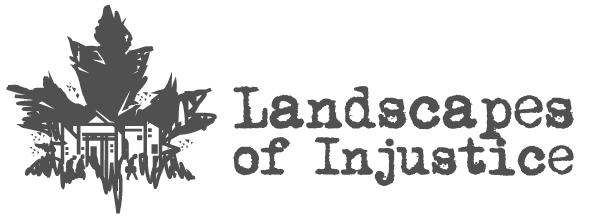
Michel Landry. I was born in Sudbury Ontario and raised in Azilda, a community seven miles West of Sudbury. Azilda was a French Canadian community where I received my early education in both French and English. In my life I lived in the NWT and the Yukon, and I moved to British Columbia in 1971 settling in Prince George in 1988. I graduated with Honors, an Associate Degree in Sciences in 1998 from the College of New Caledonia (CNC) in 1995, and I completed a double major and obtained a BSc in Chemistry and Anthropology in 2002 from UNBC. I completed my Master of Arts in Interdisciplinary Studies in 2020 and my thesis subject was “The Iroquois Voyageurs of the North-West and Oregon Territories.” During my time at UNBC, I participated in a Field School called “Ethnographic Research Project ” that did the “Wigwas Tchiman” (Birch Bark Canoe) that is at the Cercle des Canadiens Français de Prince George. We completed the project in time for the 150th Canada Day celebrations at Lheidli T’enneh Park in 2017. To add, I spent almost two years overseas in England, Belgium, France (3 months), Spain (8 months), Algeria and Morocco (6 months). I had a wonderful experience learning Spanish and some Arabic and of course enjoying the fine cuisine.
Patrycja Legut is a Polish-Canadian applied linguist, who arrived in Canada in 2006. She has worked on three continents teaching English as an Additional Language in a wide range of settings. She has dabbled in learning numerous languages, but her dreams of being truly multilingual have not come to fruition and now, she only claims the prefix ‘bi’ in front of her language skills. As fate would have it, her pursuits of being a language learner gave way to her pursuit of being a language warrior when her children were born and when she started a very challenging mission of raising them bilingually as the only Polish speaker in the household. Her mission continues. Professionally, she teaches English to the newcomers to Prince George as well as volunteers in the community.
Sara Sam. In the mid 80’s I was elected for Nak’azdli Band Council, I served for 18 years between having 6 children and retired from council in 2009. While on Band Council in 2007 we had negotiated to bring the DSTC (Developmental Standard Teaching Certificate) program to Nak’azdli to serve Nak’azdli and the surrounding communities. It was at this time that I was encouraged to participate in the program to become a certified dakelh teacher. I reluctantly agreed and found that I was a natural with straight A+ and finished the 3 years program with a 4.24 GPA. I then moved to Prince George to continue with my Bachelor of Education program for another 2 years. While attending University I found it very lonely, as my family was in Fort St. James and while at the University I was a mature student going to school with young people. In 2011 I graduated with my Bachelor of Education, at the age of 50 and moved home to become a classroom teacher at Nak’al Bun School. In September 2013 I began teaching the Dakelh/Carrier Language and Culture program at Nak’al Bun School which I have taught for 8 years now. I enjoy teaching the Language and Culture Program as it is a real joy to be able to see all the students in the whole school from Pre-school/Nursery Program K4, all the way to grade 7. I work hard at making the program fun and enjoyable for the students so that they will take pride in learning the Dakelh language and culture. I find that teaching the Language and culture is a bit difficult as the families don’t use the language at home and some students are not first nations, therefore, the students sometimes do not want to learn or participate in the program. I find that in every class there seems to be at least one autistic child or more than one special need child which also makes teaching more difficult. It seems to be a real challenge to keep the language alive. This is 10 years of teaching for me and I hope to be a teacher for another 30 years, I will retire when I am 90 years old.
Tim Curtis is the Secretary of UNESCO’s 2003 Convention for the Safeguarding of the Intangible Cultural Heritage and Chief of the Living Heritage Entity of UNESCO. He has been working in the field of culture in international contexts for over twenty years firstly as a cultural anthropologist and then for UNESCO on numerous international programmes related to culture in the fields of heritage, cultural industries, cultural policies and culture and development. Dr Curtis received his PhD in Cultural Anthropology from the Research School of Pacific and Asian Studies at the Australian National University, where he wrote a thesis on the relationship between oral history and place amongst the Na’hai speakers of Malakula in the Republic of Vanuatu. Between 2000 and 2004, he also worked as a consultant for UNESCO in the fields of Local and Indigenous Knowledge (LINKS) and the safeguarding of Intangible Cultural Heritage. In 2004, he took up the position of Programme Specialist for Culture in UNESCO’s Dar es Salaam Cluster office, where he oversaw UNESCO’s Culture Programme in Tanzania, Madagascar, Comoros, Mauritius and Seychelles. In 2009, he was appointed as head of the Culture Unit in UNESCO Bangkok office, with the responsibility to oversee the implementation of UNESCO’s Culture Programme in South-East Asia (Thailand, Laos, Myanmar and Singapore) and coordinate the work of the Sector throughout the Asia Pacific region. He was appointed to his current position as Secretary of the 2003 Convention for the Safeguarding of the Intangible Cultural Heritage in January 2016.
Yvonne Pierreroy is of indigenous ancestry, a member of the Tl’azt’en Nation and Nak’azdli Whut’en and the Lasilyoo Clan. Yvonne is one of the founding members of the Prince George Native Friendship Centre Society and served on several committees including the Board of Directors and one term as President of the Society. She also served on the Board of Directors of the Central Interior Native Health Society; the Ethics Advisory Committee of Genome BC; the Grants Committee of the Prince George Community Foundation; and the Coordinating Committee for the Minerva North Foundation Learning to Lead Training Program. While employed by the University of Northern British Columbia Yvonne also Co-Instructed the Carrier Language Classes and assisted in the development of the curriculum for the courses. Since her retirement from the workforce, Yvonne shares her knowledge of her Dakelh language and culture to many education institutions and community organizations.
Way-gozis-amin, niin-indigo (The son of creator, is my spirit name). Bill Mainville is my English name. I am from Couchiching First Nation, Ontario, Canada. I am anishinabe (Ojibwa) and I am of the muskrat clan. I am a pipe and drum carrier. I have been singing for about 25 years. Travelling the powwow trail for the last 15 years it had brought me all over turtle island. I enjoy teaching and sharing the songs, and looking forward to sharing more in the future passing on teachings that were passed to me.
Biographies des panélistes
Ami Hagiwara enseigne la langue et la culture japonaise à l’Université de Northern British Columbia depuis plus de 25 ans. Elle pratique l’art floral depuis plus de 40 ans. Après avoir obtenu un diplôme de l’Université de Nihon et une maîtrise en éducation de l’Université de Northern British Columbia, elle s’est installée au Canada en 1994 et a commencé à enseigner à l’université. Elle a mis en place la plupart des programmes d’échange avec des universités partenaires au Japon, s’occupant des étudiants entrants et établissant des liens avec les étudiants sortants. Elle s’intéresse particulièrement à la composition et à la pédagogie du ‘kanji’. Ce qu’elle préfère dans la vie de tous les jours, c’est prendre une tasse de thé avec un gâteau entre les cours et les notations.
Je suis Charly Maiwan Moaku Matia. Promoteur producteur et consultant des artistes. Je suis opérateur culturel depuis plus de 30 ans j’ai suis président des deux structures: www.maiwanproductions.com et www.festivalmondialmusicfemmes.com. Je travaille avec plusieurs organismes dans le monde.
Darlene Cooper. La Black Loyalist Heritage Society a été fondée à la fin des années 1990 par un groupe de membres de la communauté noire de Birchtown/Shelburne (Nouvelle-Écosse) qui discutaient de l’absence d’informations historiques sur la communauté noire fondatrice de Birchtown et de Shelburne, lorsque les communautés ont été colonisées en 1783 par les Loyalistes de l’Empire-Uni. Ces membres fondateurs ont travaillé sans relâche pour faire comprendre aux gouvernements (municipal et provincial) la nécessité de raconter l’histoire de l’arrivée des Afro-Canadiens dans les provinces maritimes. Les efforts de collecte de fonds et les partenariats avec tous les niveaux de gouvernement, la communauté élargie et d’autres organisations pour construire le Black Loyalist Heritage Centre ont pris de nombreuses années. Le centre a ouvert ses portes en 2015 et est le joyau de la famille des musées de la Nouvelle-Écosse. Je suis une Black Loyalist de 6e génération ; j’ai grandi à Shelburne, j’ai obtenu mon diplôme et j’ai fréquenté l’université jusqu’en 1981, lorsque je me suis aventurée dans l’Ouest avec mon mari pour fonder une famille et élever nos enfants. J’ai pris ma retraite en 2018 et suis revenue à Shelburne en 2019 pour commencer notre retraite (pendant la pandémie de COVID). Je suis devenue membre du conseil d’administration de la Société du patrimoine à l’été 2020 et j’en suis maintenant la présidente depuis 2021. J’en suis encore à apprendre les ficelles du métier. Je ne peux pas souligner à quel point le Centre est devenu important, surtout pour son importance significative pour la communauté noire : nos racines, et les histoires d’où nous venons. Je n’ai pas eu l’occasion d’apprendre cette histoire à l’école et je n’étais pas consciente de mon héritage noir, mais c’est l’histoire locale qui remonte à plus de 230 ans.
Bonjour, je m’appelle Gary Wilson et je suis professeur de politique et de gouvernement à l’Université de Northern British Columbia. Mes recherches portent sur la revitalisation linguistique et culturelle de l’île de Man et d’autres petites juridictions insulaires des îles britanniques. Je m’intéresse particulièrement à la relation entre la revitalisation linguistique et l’autodétermination politique. Dans le cadre de mes recherches, j’ai examiné les relations entre les États autochtones et l’autodétermination des autochtones dans l’Arctique canadien et circumpolaire. Mes ancêtres maternels étaient originaires de l’île de Man et j’ai récemment commencé à apprendre le gaélique manx, la langue autochtone de l’île, grâce à un cours en ligne offert par Culture Vannin, une organisation qui fait la promotion de la langue et de la culture manx. Ses travaux sur la revitalisation des langues indigènes ont été publiés dans Current Issues in Language Planning et Language Documentation and Description.
Howard Jang est un leader artistique respecté à l’échelle internationale. En janvier 2022, Howard a rejoint le ArtSpring Arts Centre sur Salt Spring Island en tant que directeur exécutif et artistique. Plus récemment, Howard a occupé le poste de vice-président des arts et du leadership au Banff Centre for Arts and Creativity. Howard a également occupé des postes de direction au Arts Club Theatre, au Ballet BC, au Winnipeg Symphony et au Vancouver Symphony Orchestra. Il a également été professeur de pratique professionnelle à la SFU School for the Contemporary Arts et directeur du SFU Woodward’s Goldcorp Centre for the Arts. Howard Jang a été un membre actif de plusieurs conseils et comités bénévoles, notamment pour le Sommet canadien des arts, Orchestres Canada, le Programme de stabilisation des arts du Manitoba et le Conseil des Arts du Canada, le BC Arts Council Music, la ville de Vancouver, la Vancouver Alliance for Arts and Culture et la Greater Vancouver Professional Theatre Alliance. Howard est actuellement membre du comité exécutif de l’International Society for the Performing Arts. Howard a été président de Tourism Vancouver en 2011/2012 et a été membre du conseil d’administration du Conseil des Arts du Canada de 2012 à 2016.
John Mainville. Je suis un Anishinaabe qui a grandi dans la Première nation de Couchiching et de Nigigoonsiminikaaning, en Ontario, puis j’ai vécu à Winnipeg, au Manitoba, et je vis maintenant à Prince George, en Colombie-Britannique. Je fais partie du clan Wazhashk, ou Muskrat, et j’ai aussi un nom Anishinaabemowin que je partagerai lors de la conférence. Malheureusement, je ne parle pas couramment ma langue, mais je fais de mon mieux pour l’intégrer quotidiennement. Je me considère privilégiée d’avoir grandi avec des gens qui m’ont enseigné la culture anishinaabe, qui me guide dans tous les aspects de la vie quotidienne. Je suis également étudiante au baccalauréat en sciences dans le programme d’écologie et de gestion forestières de l’Université du Nord de la Colombie-Britannique. J’accorde de l’importance à ces deux savoirs, car je considère que les enseignements des Anishinaabe forment ma façon de penser, tandis que mon éducation m’aide à exprimer ma façon de penser, et j’aime les relier pour voir quelles idées novatrices peuvent être formées.
Kristin Catherwood (M.A. Folklore) est la directrice du patrimoine vivant de l’organisme sans but lucratif Heritage Saskatchewan. Folkloriste spécialisée en ethnographie et en engagement communautaire, Kristin fait passer les principes du patrimoine culturel immatériel (PCI) et du patrimoine vivant de la théorie à la pratique, en utilisant des cadres méthodologiques ethnographiques établis et en les adaptant au contexte culturel unique de chaque communauté dans laquelle elle travaille. Née et élevée dans une ferme familiale centenaire sur le territoire du Traité 4, Kristin est directrice de la Fondation canadienne pour la revitalisation rurale et membre du comité consultatif Mémoire du monde du CCUNESCO. Elle croit en la nécessité de donner aux communautés les moyens d’interpréter et de sauvegarder leur propre patrimoine vivant et défend l’écosystème des prairies et ses paysages naturels et culturels.
Lara Maynard a étudié l’anglais et le folklore à l’Université Memorial. Depuis 20 ans, elle travaille et fait du bénévolat pour des organisations et des initiatives patrimoniales locales et provinciales à Terre-Neuve-et-Labrador. Ancienne agente de sensibilisation municipale de Heritage NL, elle est actuellement coordonnatrice de la formation aux compétences patrimoniales de l’organisme, organisant des ateliers sur les compétences traditionnelles en construction et en artisanat, et aidant à administrer le programme pilote Mentor Apprentice, qui compte des paires de personnes enseignant et apprenant des métiers à risque, du perlage à la construction de bateaux.
Michael Abe est un Canadien japonais de troisième génération et a été le chef de projet de Landscapes of Injustice, un projet de recherche de sept ans basé à l’Université de Victoria. Le projet portait sur la dépossession des biens appartenant aux Canadiens japonais dans les années 1940. Michael a beaucoup travaillé avec la communauté nippo-canadienne pour l’aider à utiliser la base de données de recherche du projet afin d’explorer l’histoire de leur famille pendant cette période. Michael est également l’ancien président de la Victoria Nikkei Cultural Society. Il parle couramment le japonais et pratique les arts martiaux, la calligraphie japonaise et la peinture à l’encre.
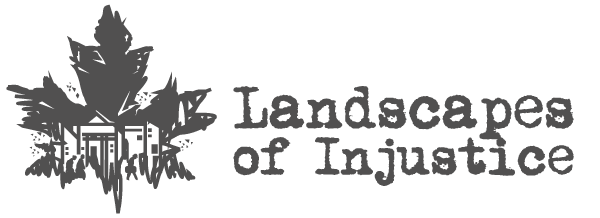
Michel Landry. Je suis né à Sudbury (Ontario) et j’ai grandi à Azilda, une communauté située à sept miles à l’ouest de Sudbury. Azilda était une communauté canadienne-française où j’ai reçu ma première éducation en français et en anglais. Au cours de ma vie, j’ai vécu dans les Territoires du Nord-Ouest et au Yukon, et j’ai déménagé en Colombie-Britannique en 1971 pour m’établir à Prince George en 1988. J’ai obtenu avec mention, un Associate Degree en sciences en 1998 du College of New Caledonia (CNC) en 1995, et j’ai complété une double majeure et obtenu un BSc en chimie et anthropologie en 2002 de UNBC. J’ai obtenu ma maîtrise en études interdisciplinaires en 2020 et mon sujet de thèse était “Les voyageurs iroquois des territoires du Nord-Ouest et de l’Oregon”. Pendant mon séjour à l’UNBC, j’ai participé à une école de terrain appelée “Projet de recherche ethnographique ” qui a fait le “Wigwas Tchiman” (canoë en écorce de bouleau) qui se trouve au Cercle des Canadiens Français de Prince George. Nous avons terminé le projet à temps pour les célébrations du 150e anniversaire du Canada au parc Lheidli T’enneh en 2017. Pour ajouter, j’ai passé presque deux ans à l’étranger en Angleterre, en Belgique, en France (3 mois), en Espagne (8 mois), en Algérie et au Maroc (6 mois). J’ai vécu une merveilleuse expérience en apprenant l’espagnol et un peu d’arabe et en appréciant la bonne cuisine.
Patrycja Legut est une linguiste appliquée canadienne d’origine polonaise, arrivée au Canada en 2006. Elle a travaillé sur trois continents, où elle a enseigné l’anglais comme langue supplémentaire dans des contextes très divers. Elle s’est essayée à l’apprentissage de nombreuses langues, mais son rêve d’être véritablement multilingue ne s’est pas réalisé et, aujourd’hui, elle ne revendique que le préfixe “bi” devant ses compétences linguistiques. Le destin a voulu que son désir d’apprendre des langues cède la place à celui d’être une guerrière des langues lorsque ses enfants sont nés et qu’elle s’est lancée dans une mission très difficile : les élever de manière bilingue en étant la seule polonaise de la famille. Sa mission se poursuit. Professionnellement, elle enseigne l’anglais aux nouveaux arrivants à Prince George et fait du bénévolat dans la communauté.
Tim Curtis est le secrétaire de la Convention de 2003 de l’UNESCO pour la sauvegarde du patrimoine culturel immatériel et le chef de l’entité du patrimoine vivant de l’UNESCO. Il travaille dans le domaine de la culture dans des contextes internationaux depuis plus de vingt ans, d’abord en tant qu’anthropologue culturel, puis pour l’UNESCO sur de nombreux programmes internationaux liés à la culture dans les domaines du patrimoine, des industries culturelles, des politiques culturelles et de la culture et du développement. Le Dr Curtis a obtenu son doctorat en anthropologie culturelle à la Research School of Pacific and Asian Studies de l’Australian National University, où il a rédigé une thèse sur la relation entre l’histoire orale et le lieu chez les locuteurs Na’hai de Malakula, dans la République du Vanuatu. Entre 2000 et 2004, il a également travaillé comme consultant pour l’UNESCO dans les domaines des connaissances locales et indigènes (LINKS) et de la sauvegarde du patrimoine culturel immatériel. En 2004, il a pris le poste de spécialiste de programme pour la culture au bureau multipays de l’UNESCO à Dar es Salaam, où il a supervisé le programme culturel de l’UNESCO en Tanzanie, à Madagascar, aux Comores, à Maurice et aux Seychelles. En 2009, il a été nommé à la tête de l’unité Culture du bureau de l’UNESCO à Bangkok, avec la responsabilité de superviser la mise en œuvre du programme Culture de l’UNESCO en Asie du Sud-Est (Thaïlande, Laos, Myanmar et Singapour) et de coordonner le travail du secteur dans toute la région Asie-Pacifique. Il a été nommé à son poste actuel de secrétaire de la Convention de 2003 pour la sauvegarde du patrimoine culturel immatériel en janvier 2016.
Sara Sam. Au milieu des années 80, j’ai été élu au conseil de bande de Nak’azdli, j’ai servi pendant 18 ans entre avoir eu 6 enfants et pris ma retraite du conseil en 2009. Au sein du conseil de bande en 2007, nous avions négocié pour apporter le programme DSTC (Certificat d’enseignement standard de développement) à Nak’azdli pour desservir Nak’azdli et les communautés environnantes. C’est à cette époque que j’ai été encouragé à participer au programme pour devenir un enseignant certifié de dakelh. J’ai accepté à contrecœur et j’ai découvert que j’étais un naturel avec un A + droit et j’ai terminé le programme de 3 ans avec un 4.24 GPA. J’ai ensuite déménagé à Prince George pour poursuivre mon programme de baccalauréat en éducation pendant encore 2 ans. Pendant mes études à l’université, je me sentais très seul, car ma famille était à Fort St. James et pendant que j’étais à l’université, j’étais un étudiant adulte qui allait à l’école avec des jeunes. En 2011, j’ai obtenu mon baccalauréat en éducation à l’âge de 50 ans et j’ai déménagé pour devenir enseignant à l’école Nak’al Bun. En septembre 2013, j’ai commencé à enseigner le programme Dakelh/Carrier Language and Culture à l’école Nak’al Bun que j’enseigne depuis 8 ans maintenant. J’aime enseigner le programme de langue et de culture car c’est une vraie joie de pouvoir voir tous les élèves de toute l’école du programme préscolaire/maternelle K4, jusqu’à la 7e année. Je travaille dur pour rendre le programme amusant et agréable pour les étudiants afin qu’ils soient fiers d’apprendre la langue et la culture Dakelh. Je trouve que l’enseignement de la langue et de la culture est un peu difficile car les familles n’utilisent pas la langue à la maison et certains étudiants ne sont pas des Premières nations, par conséquent, les étudiants ne veulent parfois pas apprendre ou participer au programme. Je trouve que dans chaque classe, il semble y avoir au moins un enfant autiste ou plus d’un enfant ayant des besoins spéciaux, ce qui rend également l’enseignement plus difficile. Cela semble être un véritable défi de garder la langue vivante. C’est 10 ans d’enseignement pour moi et j’espère être enseignant encore 30 ans, je prendrai ma retraite quand j’aurai 90 ans.
Yvonne Pierreroy est d’ascendance autochtone, membre de la Nation Tl’azt’en et Nak’azdli Whut’en et du Clan Lasilyoo. Yvonne est l’un des membres fondateurs de la Prince George Native Friendship Centre Society et a siégé à plusieurs comités, dont le conseil d’administration, et a rempli un mandat de présidente de la société. Elle a également siégé au conseil d’administration de la Central Interior Native Health Society, au comité consultatif d’éthique de Genome BC, au comité des subventions de la Prince George Community Foundation et au comité de coordination du programme de formation Learning to Lead de la Minerva North Foundation. Lorsqu’elle était employée par l’Université du Nord de la Colombie-Britannique, Yvonne a également co-animé les cours de langue des porteurs et a participé à l’élaboration du programme d’études pour ces cours. Depuis qu’elle a pris sa retraite, Yvonne partage ses connaissances de la langue et de la culture dakelh avec de nombreux établissements d’enseignement et organismes communautaires.
Way-gozis-amin, niin-indigo (Le fils du créateur, est mon nom d’esprit). Bill Mainville est mon nom anglais. Je suis de la Première nation Couchiching, en Ontario, au Canada. Je suis anishinabe (Ojibwa) et je fais partie du clan des rats musqués. Je suis porteur de cornemuse et de tambour. Je chante depuis environ 25 ans. J’ai parcouru le sentier des pow-wow au cours des 15 dernières années, ce qui m’a amené partout sur l’île de la tortue. J’aime enseigner et partager les chansons, et j’ai hâte de partager davantage à l’avenir en transmettant les enseignements qui m’ont été transmis.
Aanikanootaagewinini o’dibaajimowin
